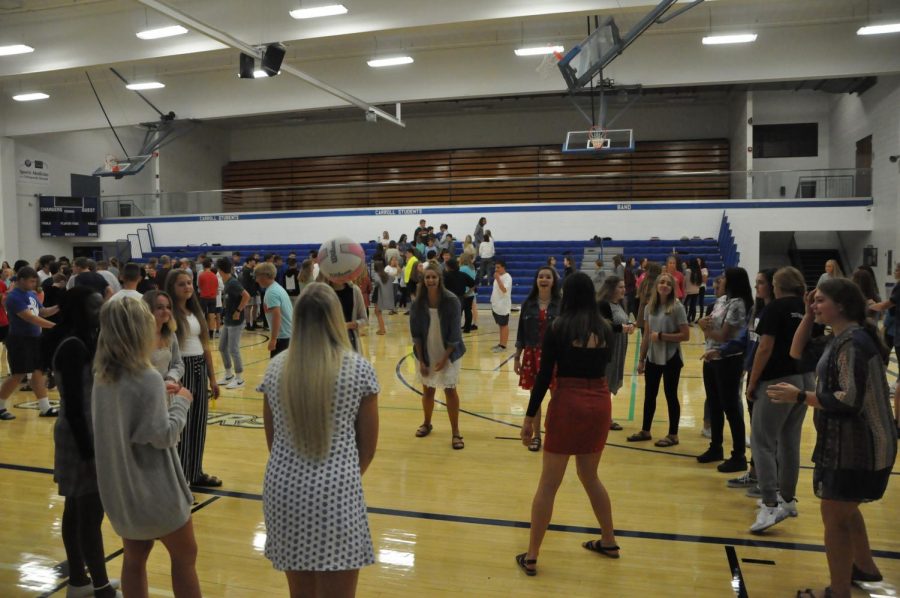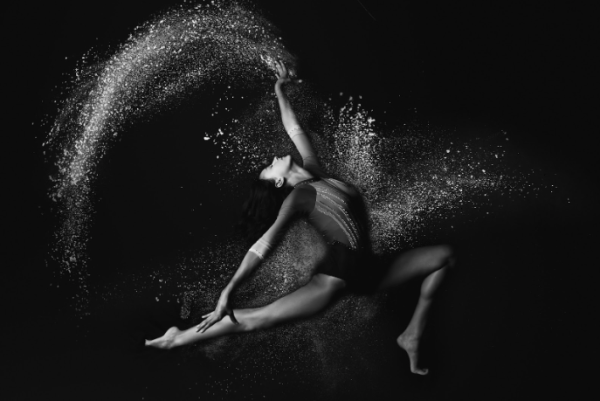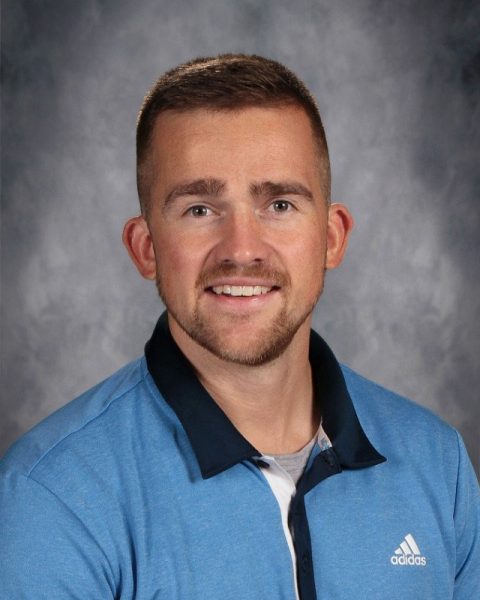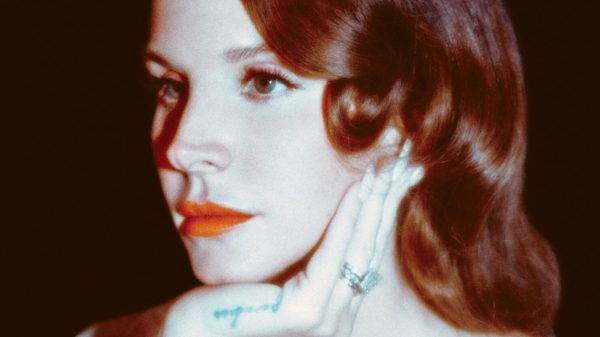Religion plays role in public schools
Members of Enlightened, is one of three religious groups at the school, gather in September 2019 in the Alumni gym.
On an average school day, a student can probably look forward to the following: a lab in science class, maybe an essay in English and a documentary in history. But what if something else was thrown into the mix? What if after all the writing and note-taking and lunchroom decision every student gathered in prayer?
Crazy right?
Even for religious students who attend this school, the idea of spending part of the school day devoted to faith would be mind-blowing. From St. Vincent and Blackhawk Christian to Bishop Dwenger and Bishop Luers, the students there are young adults just like here.
This article is not an attempt to convert people to a religion, but instead, this is about how our lives at school contrast with the average student of a religious school. Our school is not much different from any of those previously mentioned parochial schools.
There are many students here at our school who have come from religious schools such as senior Camden Thompson who, before coming to the NACS family, was a student at St. Vincent.
“In St. Vincent, we had to wear uniforms, which personally looking back on I actually liked. Everyone was on the same page and wouldn’t judge each other, and I didn’t have to think about what to wear in the mornings,” said Camden.
Many students, like Camden, have their school life and their religious beliefs they keep separate. However, in school, religious discussions do come up from time to time. It is the teacher’s job to remain neutral by not delving into their own personal beliefs or swaying students to one side of the discussion.
This is because unlike a religious school, public schools are expected to follow a strict code of guidelines that lay out what a teacher can and cannot say. Something that the guidelines don’t restrict nearly as much is student expression.
Though Carroll doesn’t have any religious affiliation, that hasn’t stopped students from gathering together and making a bridge between their lives at school and their lives at church. Enlightened is easily the biggest faith-based group at our school. Senior Graham Ruselink is passionate about the group.
“Enlightened has been something that has really modeled my heart into the shape it is today. The heart I have for other people has grown immensely since this club has started,” said Graham. “I have come to know people from many different walks of faith and we have been able to be prayer warriors for each other through our life.”
No one said students at a public school can’t express what they believe; it just can’t interrupt schoolwork. But what would it be like to go to a school where more or less everyone believes the same thing?
Some might say it’s a good thing to have contrasting opinions in the student environment. It could give them a wider view of how people think rather than just a line of thought.
Where should the line be drawn? Is the best way to be closer to your faith by having your whole life school and otherwise tied to religion?
Senior Maddie Kindler made the transition to NACS after middle school. Even though she now attends public school, her faith has continued to grow.
“Personally, I think your religious life should be a big proof who you are and how you act no matter what school you go to. I do understand that there is a time and place and people have different beliefs and opinions,” said Kindler. “While I may not go around preaching that I’m Catholic in a public school, I still want to be a representative for Christ and what I believe in, and I think that’s a good balance.”
Being a public school doesn’t mean you can’t still be connected to Christ. Enlightened shows that Carroll has an outlet for students that want to bond together over faith. Of course, though, there is no question that depending on what school a student goes to, they will turn out differently.
“I think if I continued where I was at my religious school I would have turned out much differently,” said Thompson. “There is a chance I could have been more involved in my faith since learning is built around that. I probably wouldn’t be involved in the same after school activities or classes.”
If students or parents are worried of attending a public school rather than a religious one, a recent study has shown that attending a religious school might not actually boost a student’s odds of continuing their faith as an adult.
“The choice to switch was mainly for the curriculum and opportunities offered at Carroll rather than a private school,” said Kindler. “I am happy with how Carroll pushes its students and the challenges we must work to overcome. I am happy with how I have turned out, I have been able to learn a lot about myself.”
It is a choice that should be discussed with the student’s family and there isn’t always a quick answer when it comes to choosing a private or public school.
Teachers also have a background in religious-based schools.
Government and economy teacher Mrs. Binns graduated from Bishop Dwenger High School. She is now an employee of NACS and with now teaching at public school there are obvious differences.
“Comparing faculty, I have noticed that teachers now are expected to be more personal. I think in both schools we have worked on getting to know students more,” said Mrs. Binns. “The qualifications for a teacher in a private school are now the same as the public. So, I believe both religious schools and public schools have grown a lot for the better over the years.”
It’s no secret that teachers have beliefs too and, in schools, they must sometimes discuss topics of religion and creation. Since NACS has no religious affiliation, teachers are expected to be careful not to place any of their own opinions into the curriculum.
“We must follow a very strict ruling. We listen to the state, so like in government class, I am vague. I can’t go into detail. I have to show both sides,” said Mrs. Binns. “I want to leave it up to the student to decide. We are limited if it’s something like evolution even if we agree or disagree with must keep it out.”
Many Supreme Court cases have discussed the question of how a teacher or student should engage in their religious beliefs during school with the decision being that a teacher’s role in a public school should be to educate the students over the topic and obtain from expressing their own beliefs.
As for students who want to express their religion inside their public school, if the act doesn’t interfere with in-class activities, a student is free to express themselves.
Public or religious, it all comes down to the fact that school is an important part of a student’s life and their faith can be an important part of their lives as well.
Not attending a religious school does not make students less religious. Students like Maddie Kindler and Camden Thompson show it really isn’t about the school you go to, but instead about your character.
“Overall my faith and Enlightened has given me a supportive group of people that I know I can always count on, who have also played a huge role in my life and who I am as a person and where I am in my faith,” said Graham.
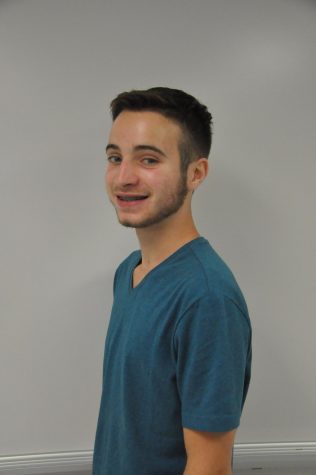
The thing Harrison Hopkins loves most about writing and journalism is being able to express yourself and tell everyone a story. As well as getting...

